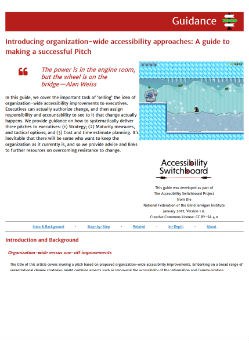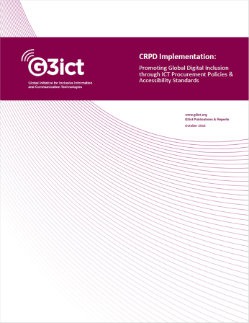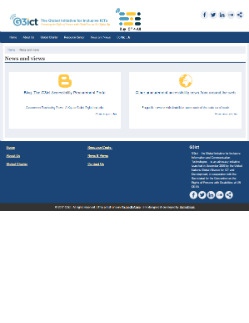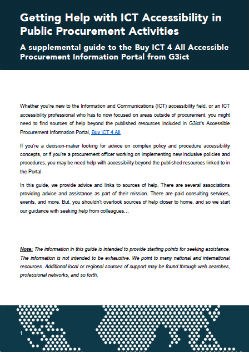If the concept of addressing accessibility is new to your group, some may question the need for embarking on a project that they perceive as bringing them yet ‘more work’. The first quick counter-argument is that this has in fact been ‘overlooked work’. After all, it has been since 2001 in the US and since 2015 in the EU that Standards have been in place for accessible ICT procurement. Any group that hasn’t been addressing accessibility since then has overlooked the 15-20% of the population who have disabilities. That’s the first argument, but on its own it isn’t likely to bring about change. Here are more resources from the Portal to help you convince others that addressing accessibility is a good idea for your group, and for your organization as a whole.
1. It is easy for staff to protest and make excuses about perceived 'more work' when such an endeavor isn't mandated by executive leadership. This is why accessibility experts advise that gaining executive support is the first job for anyone attempting to introduce an accessibility program. Read Introducing organization-wide accessibility approaches: a guide to making a successful pitch.

2. Why would the governments of 174 countries ratify the UN Convention on the Rights of Persons with Disabilities? Agreements such as these only happen when there is a collectively perceived need to change the current status quo. If your group's current state is one of opposition, this short guide provides food for thought: CRPD Implementation: Promoting Global Digital Inclusion through ICT Procurement Policies & Accessibility Standards

3. Others are forging ahead. One of the most compelling cases for addressing accessibility is that others are already reaping the societal benefits. In our News & Views section we are posting articles about countries, regions and cities that are adopting inclusive public procurement practices. (In the future, we plan to collate these and similar case studies, and add them to our growing section on Case Studies and Good Practices.)

4. There are accessibility experts who are able to deliver awareness training, and can help you create a convincing case to peers and leaders. You can find help from within your own organization, from external support organizations, or from subject matter experts in the field.

Next Pathway: I need to find guidance that is specific to my country or region…







